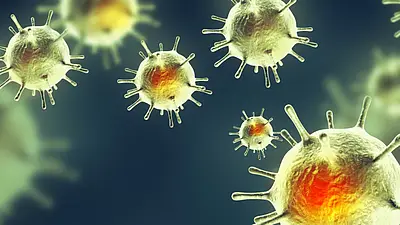Should we be concerned about HMPV?
What is HMPV?
Human metapneumovirus (HMPV) is a respiratory virus that belongs to the same family as respiratory syncytial virus (RSV). It was first identified in 2001 and is recognized as a leading cause of respiratory illnesses worldwide. HMPV infections are most common during the winter and spring months. While typically causing mild symptoms, HMPV can lead to severe respiratory complications in vulnerable populations. it can lead to more severe infections such as bronchitis or pneumonia, especially in infants, older adults, and those with weakened immune systems. Currently, there is no specific antiviral treatment for HMPV, so management focuses on supportive care.
How HMPV differs from SARS-CoV-2 (the virus that causes COVID-19)
While it is widespread and significant in healthcare contexts, it differs from SARS-CoV-2 (the virus that causes COVID-19) in several critical ways.

1. Transmission and Contagiousness:
HMPV: Spread primarily through respiratory droplets, direct contact, and surfaces. It is not as highly contagious as SARS-CoV-2. SARS-CoV-2: Highly contagious with airborne transmission and super-spreader potential.
2. Severity and Mortality: HMPV: Usually causes mild symptoms. Severe cases occur primarily in vulnerable groups. SARS-CoV-2: Causes a wide range of severity, from asymptomatic cases to critical illness and significant mortality globally.
Read also: How to speed up recovery after illness
3. Global Impact: HMPV: While common, it has not caused large-scale outbreaks or overwhelmed healthcare systems like COVID-19. SARS-CoV-2: Led to a global pandemic, widespread lockdowns, and significant socioeconomic disruptions.
4. Vaccines and Immunity: HMPV: No vaccines are currently available, but natural immunity often develops after infection. SARS-CoV-2: Vaccines were developed rapidly to mitigate the spread and severity.
Could HMPV “Shut Down the World”?
Read also: Test for anxiety (Self-Assessment)
It is unlikely. HMPV lacks the combination of high transmission, potential for severe disease in all age groups, and global scale of impact seen with COVID-19. While it is a public health concern, particularly for vulnerable populations, it does not pose the same level of global threat as SARS-CoV-2. Public health measures, such as hygiene, vaccinations for vulnerable groups (if developed), and effective treatments, can help control HMPV without leading to global shutdowns.
HMPV is a common respiratory virus that can cause symptoms similar to the flu and the common cold. Individuals need to practice good hygiene, such as washing hands frequently and avoiding close contact with sick individuals, to help prevent the spread of HMPV.
This content including advice provides generic information only. It is in no way a substitute for a qualified medical opinion. Always consult a specialist or your own doctor for more information.

